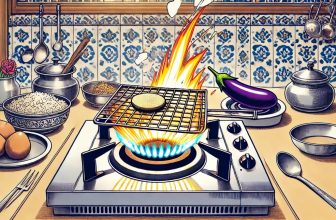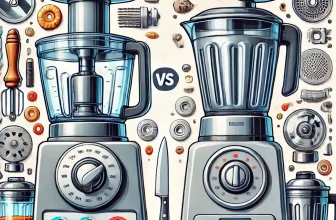Your kitchen is where health begins or ends. While Indian kitchens are rich in tradition, flavor, and routine, many everyday habits you follow without thinking might be doing more harm than good. From reusing oil to storing hot food in plastic, these practices often feel harmless but can quietly affect your health over time.
You don’t need to abandon tradition, but it’s important to adapt your kitchen to safer, smarter habits. Here’s a closer look at 13 common Indian kitchen habits that are surprisingly unhealthy and what you can do instead.
1. Reusing Oil for Frying Again and Again
You might think you’re saving money by reusing oil after deep frying, but it comes at a health cost. Each time oil is heated, its chemical structure changes, producing harmful compounds like trans fats and aldehydes. These can increase your risk of heart disease, inflammation, and even cancer. Reused oil also absorbs leftover food particles, which can burn and become toxic. If you must reuse oil, do it only once and avoid overheating it. Always strain and store it in a sealed container, away from sunlight.
2. Cooking Acidic Foods in Aluminium Utensils
Aluminium cookware is cheap and widely used across Indian households, but it reacts with acidic ingredients like tomatoes, vinegar, and tamarind. This reaction causes aluminium to leach into your food, which may accumulate in your body over time. Although small quantities are considered safe, consistent exposure has been linked to neurological issues. Switching to stainless steel, ceramic, or iron cookware is a safer long-term choice for your daily cooking.
3. Storing Hot Food in Plastic Containers
Storing leftovers in plastic dabbas is a common habit, but placing hot food directly into plastic can release harmful chemicals like BPA and phthalates. These substances can interfere with hormones and may pose long-term health risks. Even BPA-free plastics aren’t completely risk-free, especially under heat. Instead, use stainless steel or glass containers, and allow food to cool slightly before storing it.
4. Overcooking Vegetables Until They Lose All Color and Nutrition
If you boil or fry vegetables until they’re mushy and colorless, you’re stripping away essential nutrients like vitamin C, folate, and antioxidants. These vitamins are water-soluble and sensitive to heat, meaning they break down quickly under high temperatures. To keep the nutrition intact, steam or sauté vegetables lightly. Even pressure cooking should be done with minimal water and time.
5. Adding Excess Salt, Oil, and Masala for “Better Taste”
Indian food is known for its bold flavors, but more isn’t always better. Using too much salt can raise blood pressure, excess oil adds unnecessary calories, and an overload of spice can irritate your digestive system. Over time, these habits can contribute to lifestyle diseases like obesity and hypertension. Taste can still be maintained with aromatic herbs, fresh spices, and balanced cooking techniques.
6. Depending Heavily on Store-Bought Masala Powders
Ready-to-use spice mixes might save time, but many contain preservatives, added salt, artificial color, and anti-caking agents. Frequent use may lead to excessive sodium intake and exposure to synthetic additives. While they’re fine for occasional use, try grinding your own masalas in small batches or buying from reliable, preservative-free sources. You’ll not only eat healthier but enjoy fresher, more vibrant flavors.
7. Using the Same Chopping Board for Everything
Cutting vegetables, fruits, raw meat, and seafood on the same surface without washing it in between can spread harmful bacteria like salmonella or E. coli. This cross-contamination is a major cause of foodborne illnesses. Always use separate chopping boards — one for vegetarian and one for non-vegetarian items — and clean them thoroughly with soap and hot water after every use.
8. Ignoring Hidden Dirt in Mixer Grinder Gaskets and Lids
Most people clean the visible parts of their mixer grinders, but the rubber gasket, lid edges, and blade base often get overlooked. These damp, tight areas can harbor bacteria, mold, and leftover food particles. Make it a habit to remove all detachable parts after use and scrub them clean. Dry thoroughly before storing to avoid bacterial growth.
9. Leaving Cooked Food Out for Hours
In many Indian homes, food is left at room temperature for hours after lunch or dinner, especially during weddings or gatherings. But India’s warm climate creates the perfect condition for bacterial growth if food is not refrigerated within two hours. This can cause spoilage, stomach infections, and food poisoning. Always transfer leftovers to airtight containers and refrigerate promptly.
10. Overloading the Refrigerator With Containers and Packets
Your fridge isn’t a storage warehouse. When it’s too full, cold air doesn’t circulate properly, and some items may not stay cool enough, leading to faster spoilage. Leftovers can go bad, milk can sour, and vegetables can rot before their time. Keep your refrigerator organized, throw out expired items regularly, and don’t overload it. Also, avoid placing hot food directly inside as it raises the internal temperature.
11. Using Scratched or Damaged Non-Stick Cookware
If your non-stick pan has visible scratches or flakes, stop using it. Teflon coatings can break down and release toxic chemicals when heated, especially above 260°C. These chemicals can contaminate food and cause health issues when ingested over time. If you prefer non-stick cookware, invest in high-quality, toxin-free options and avoid using metal utensils that damage the coating.
12. Going Overboard With Oil-Based Tadka
Tadka (tempering) gives Indian food its signature aroma and flavor, but frying mustard seeds, cumin, and spices in large amounts of oil adds unnecessary fat to your meal. Many households use more oil than needed during tadka, turning a healthy dish into a greasy one. Instead, use just a teaspoon or try dry-roasting spices when possible for a healthier but equally flavorful touch.
13. Reheating Leftover Rice Without Proper Heating
Leftover rice is a staple in many Indian kitchens, but if it’s not stored or reheated correctly, it can lead to food poisoning. Cooked rice can contain Bacillus cereus, a bacteria that survives the cooking process and multiplies when rice is left at room temperature. Always refrigerate rice within 1-2 hours of cooking and reheat thoroughly until steaming hot before consuming it again.
Conclusion – Rethink These 13 Kitchen Practices
Most Indian kitchens operate on routine, but not all routines are healthy. Reusing oil, overcooking vegetables, cooking in aluminium, or storing food carelessly can all have long-term consequences on your well-being. By identifying and changing just a few of these 13 unhealthy habits, you can make your kitchen a safer and healthier space for you and your family—without giving up the comfort of traditional cooking.





